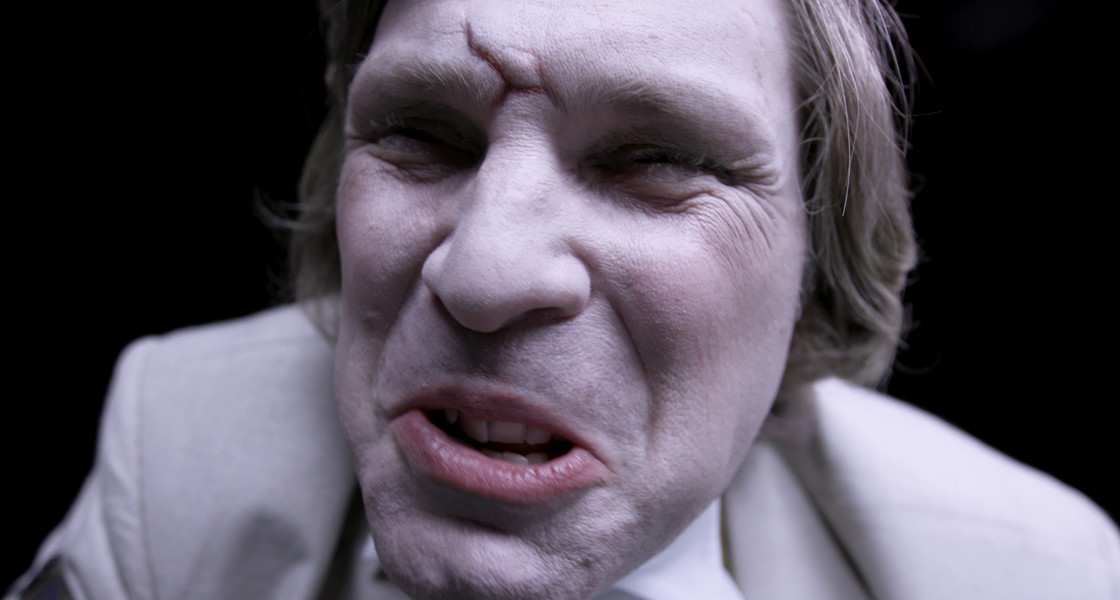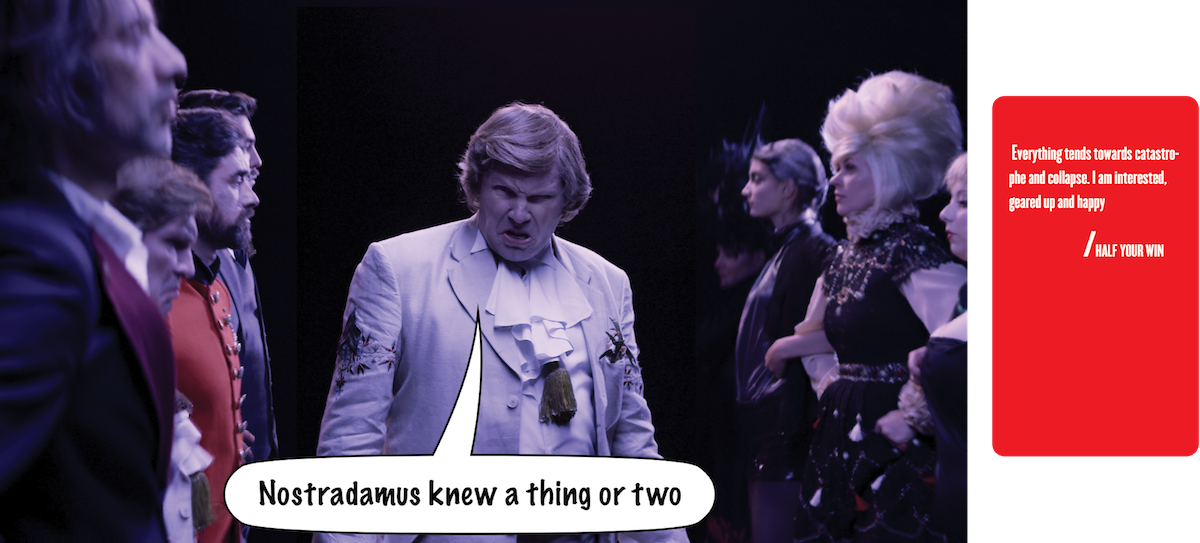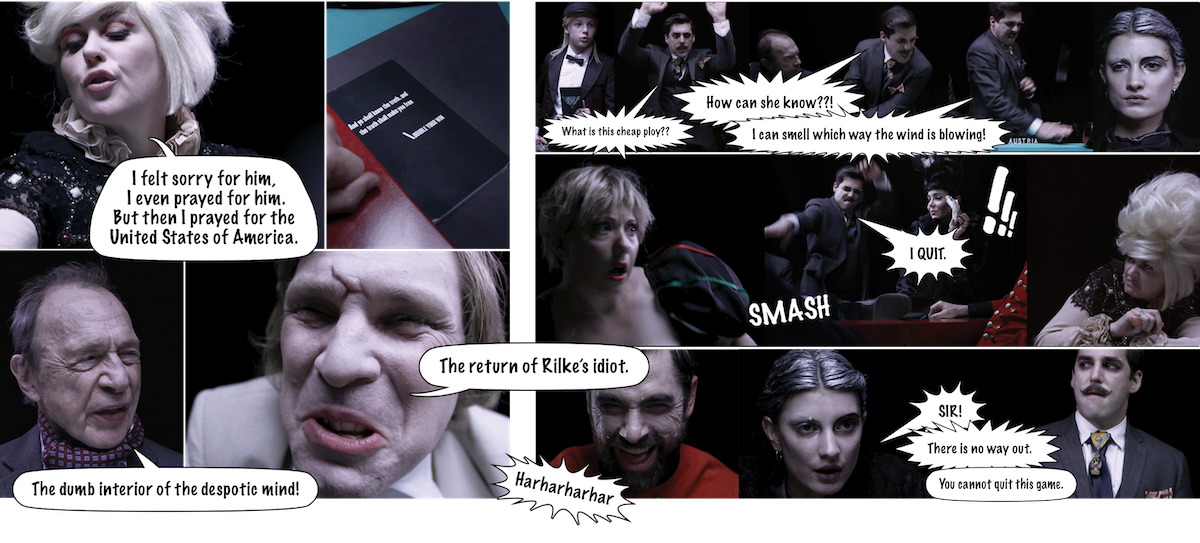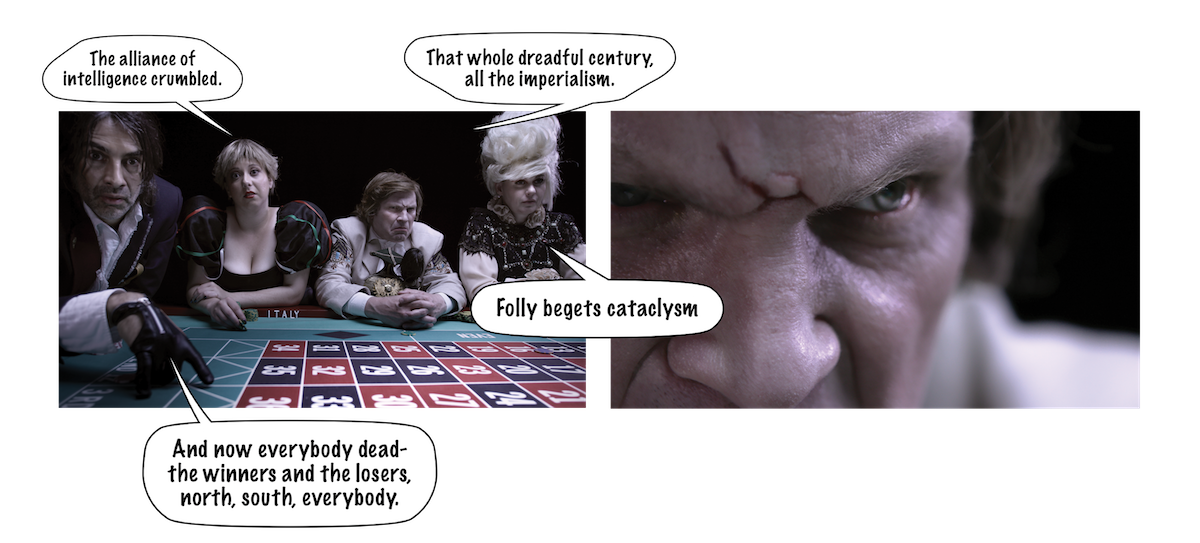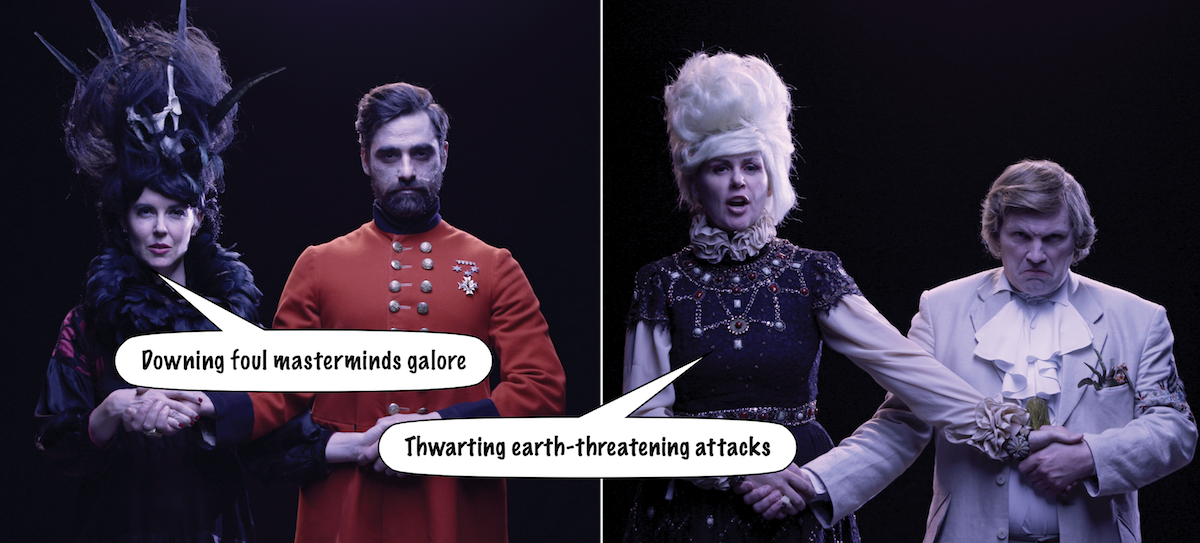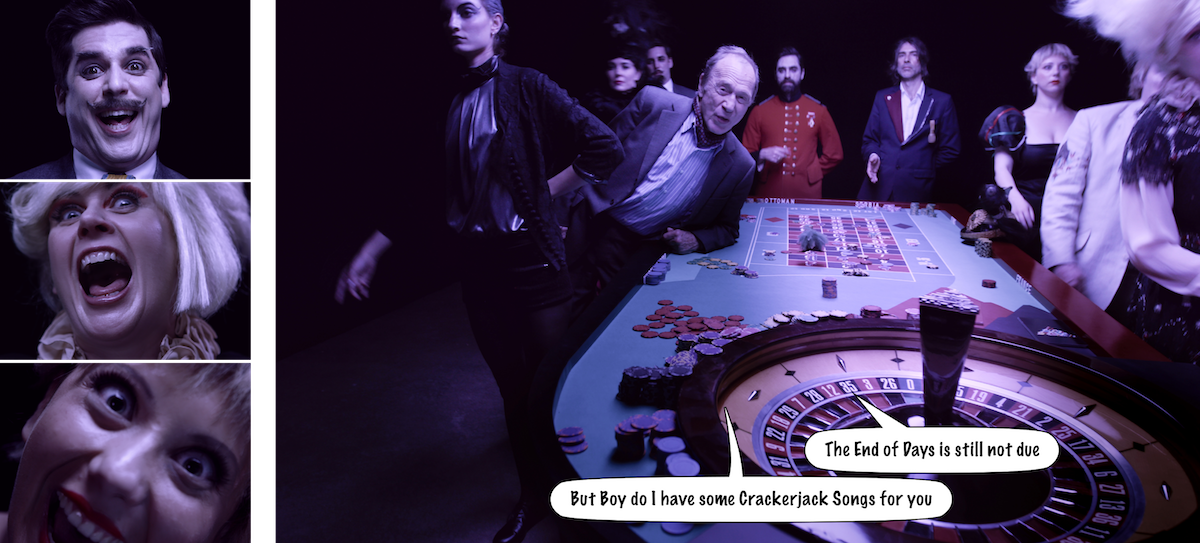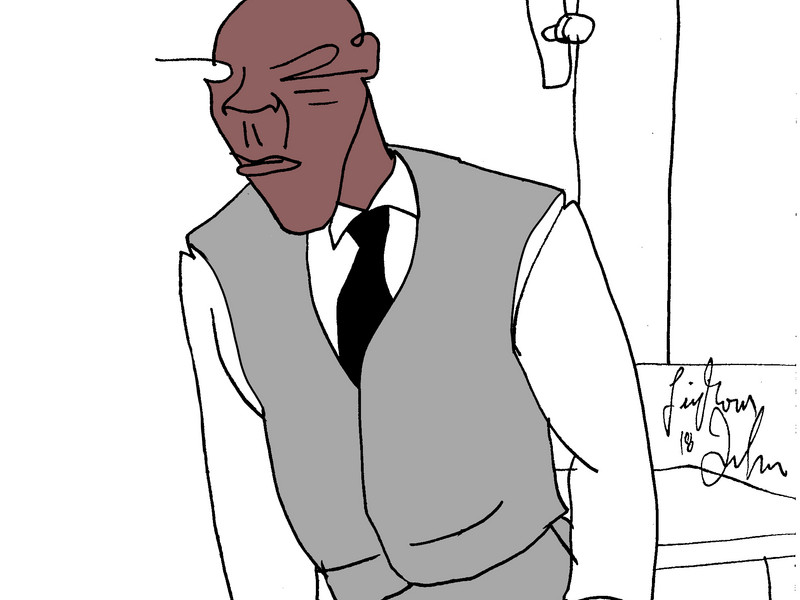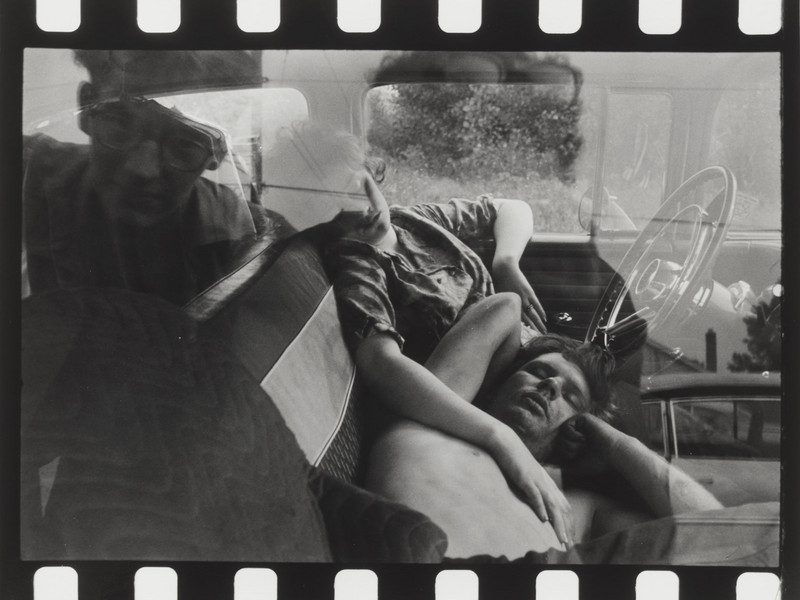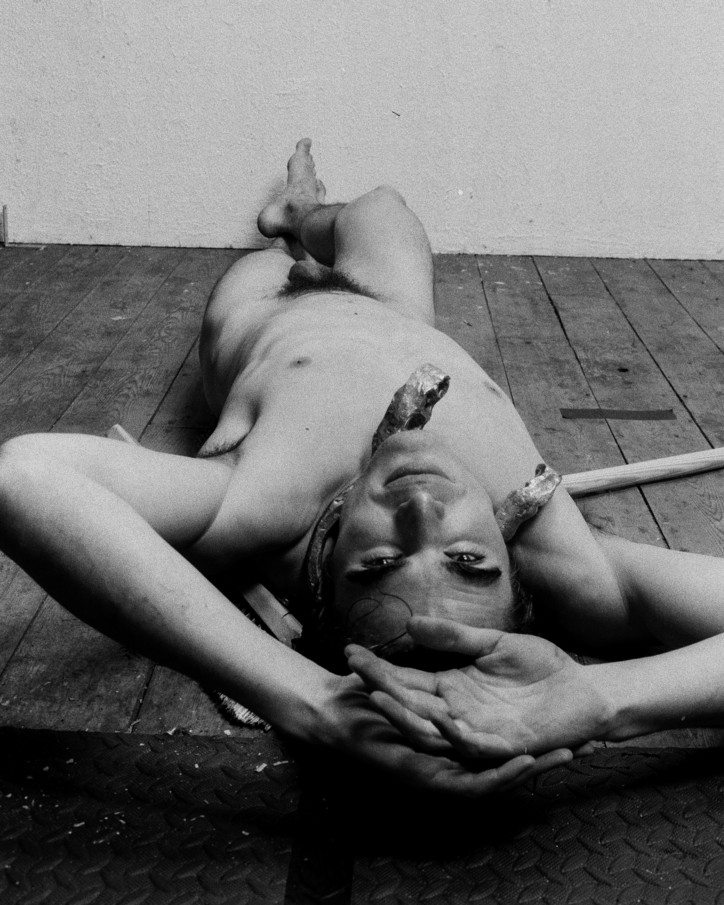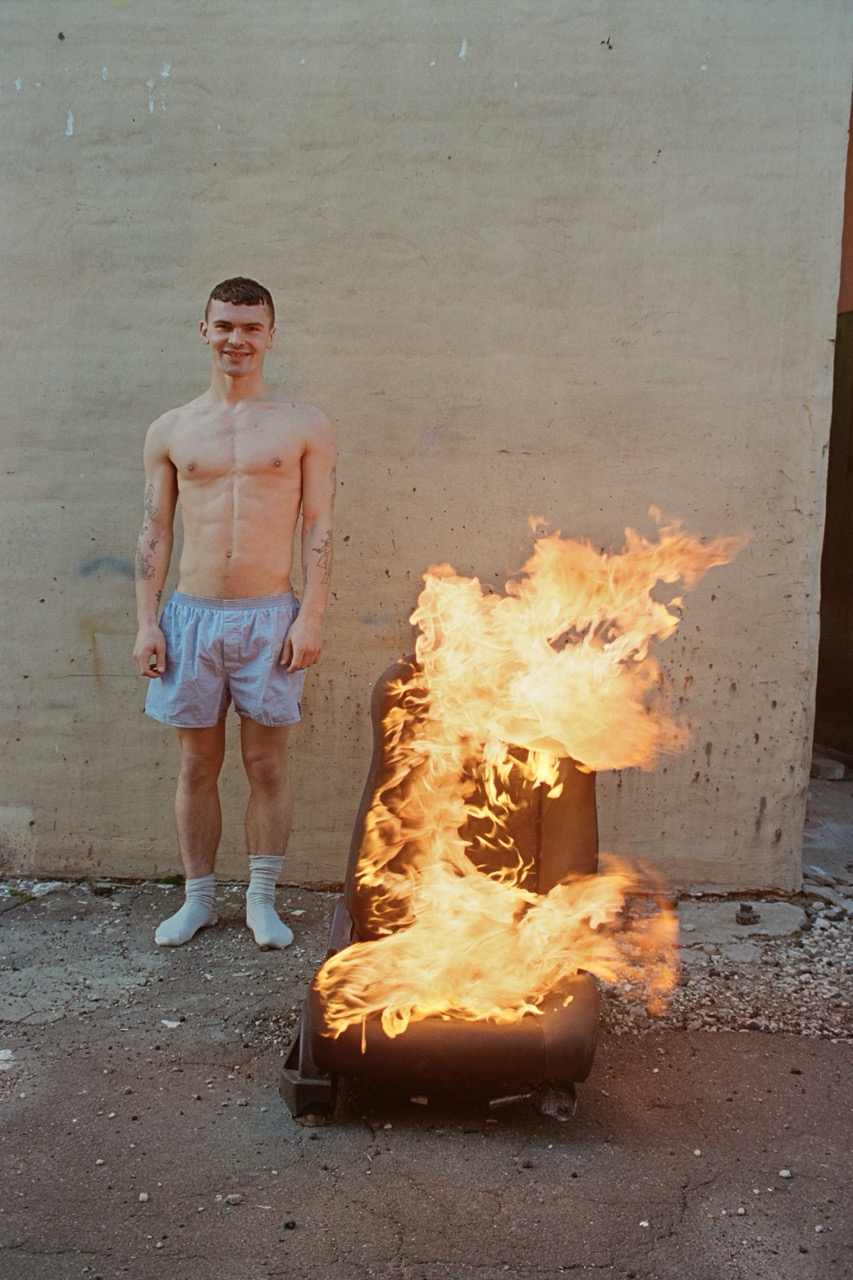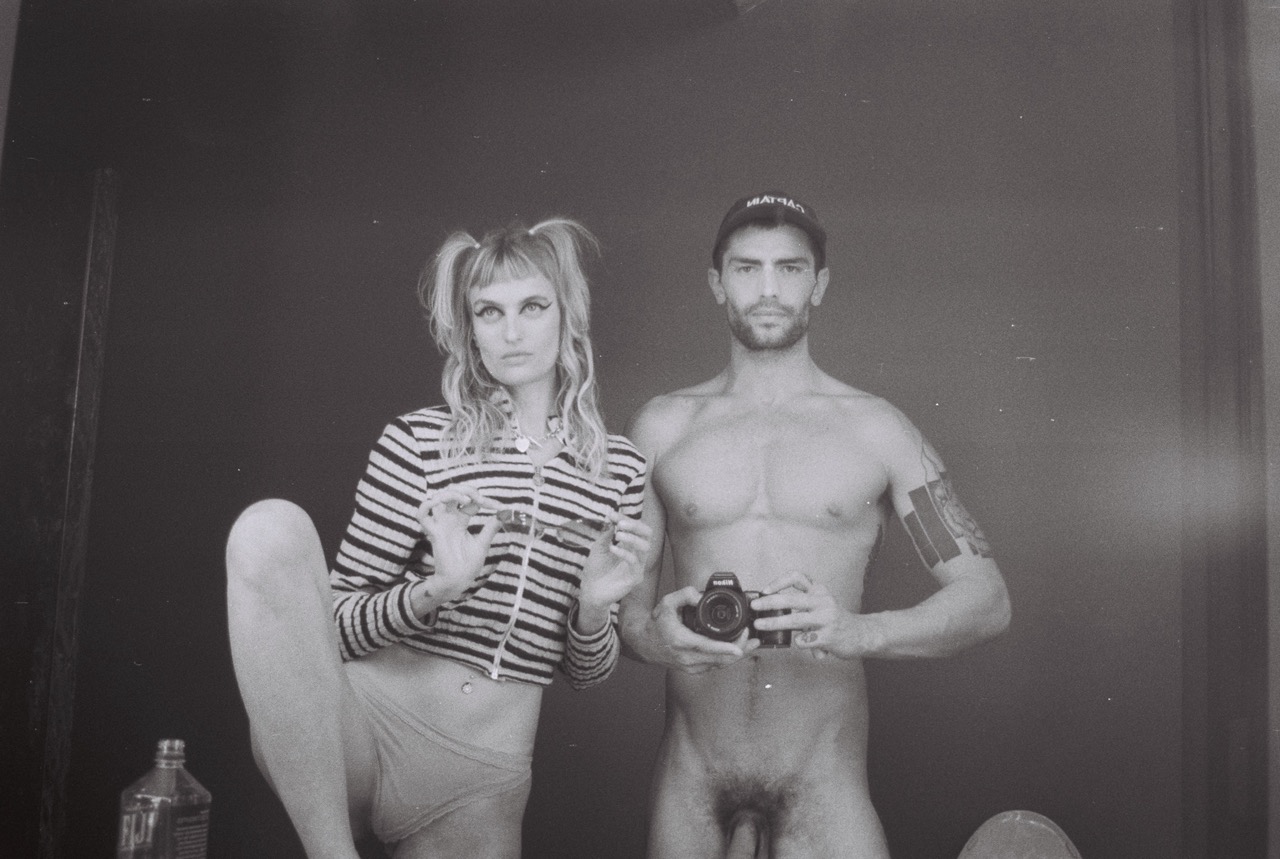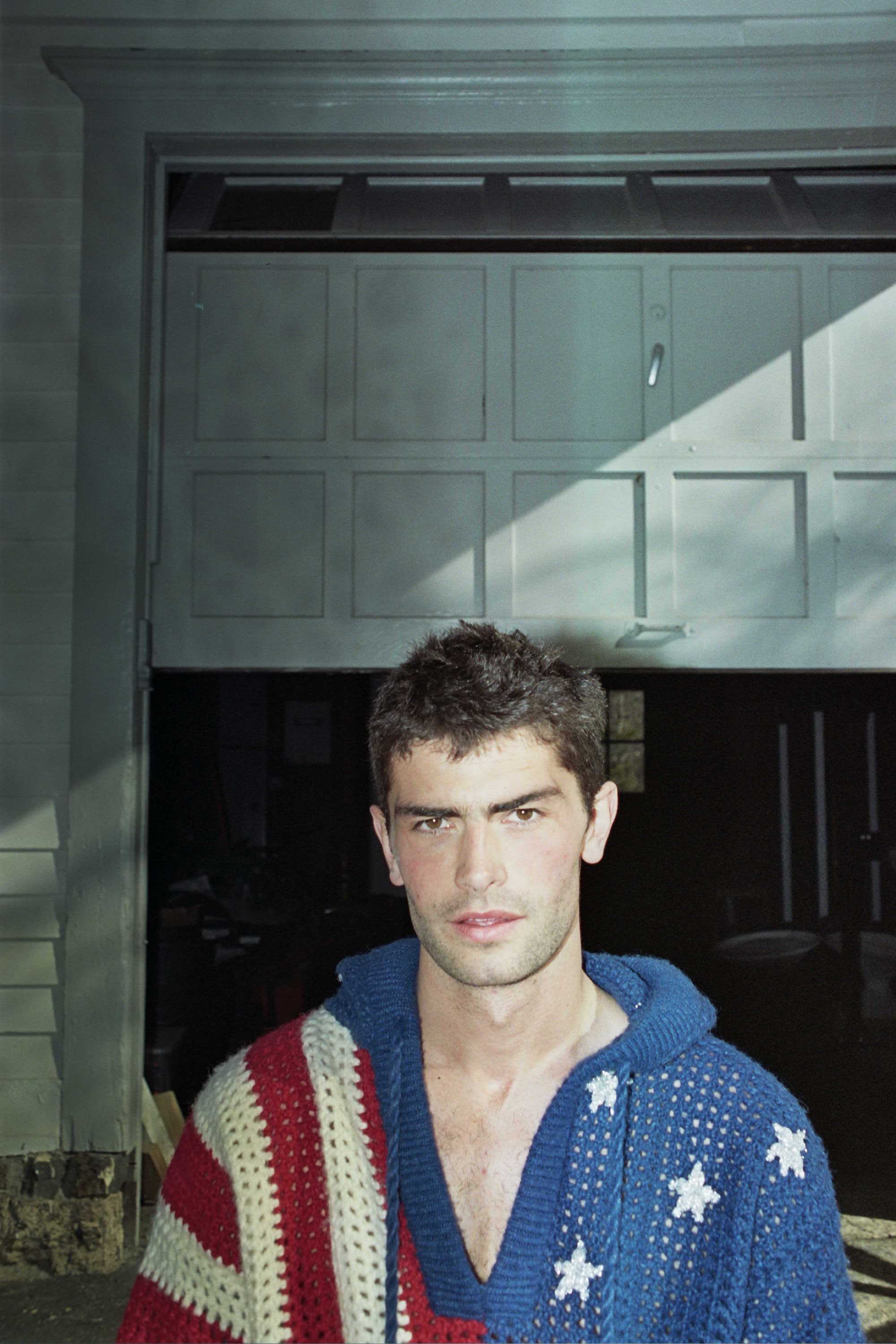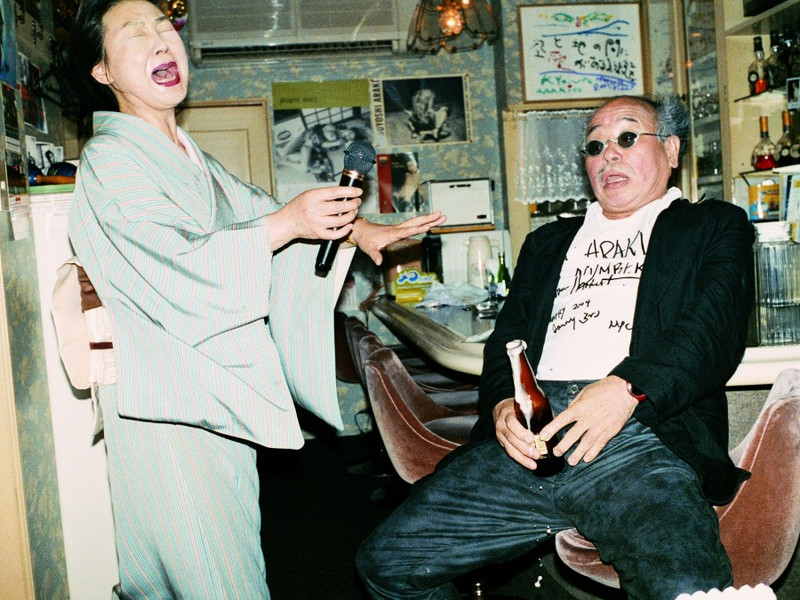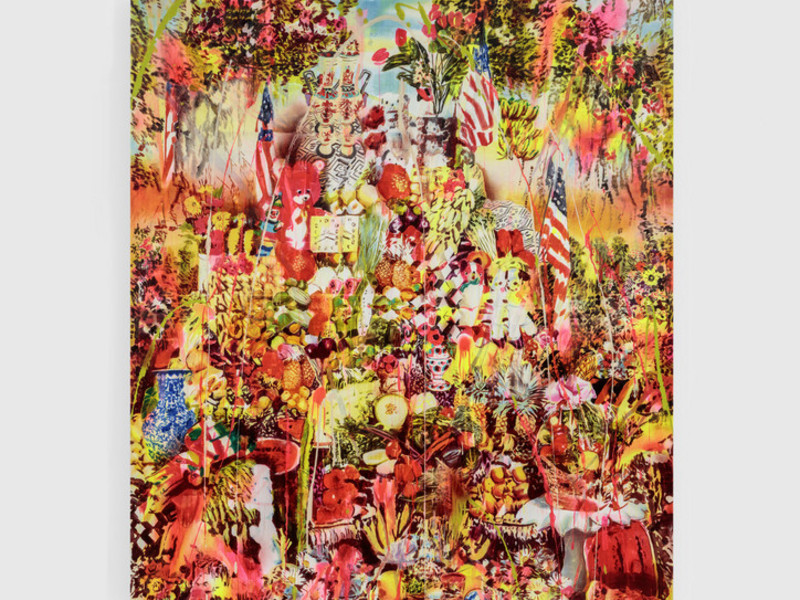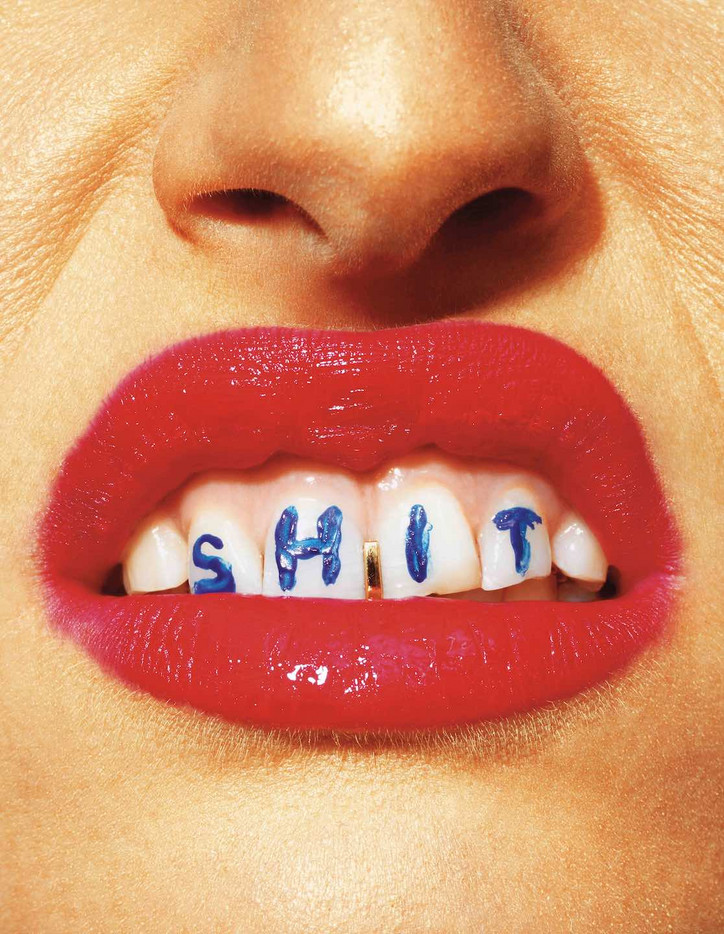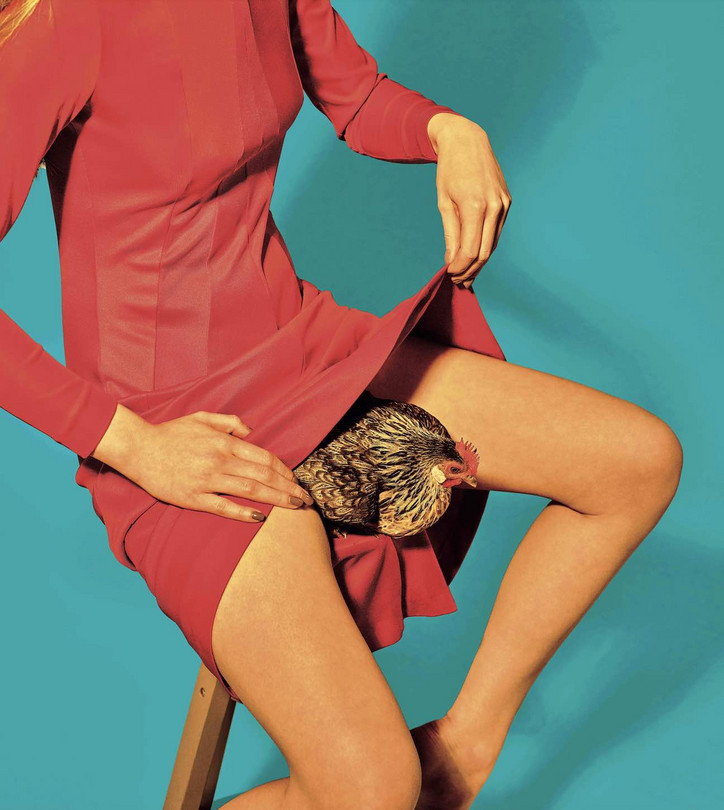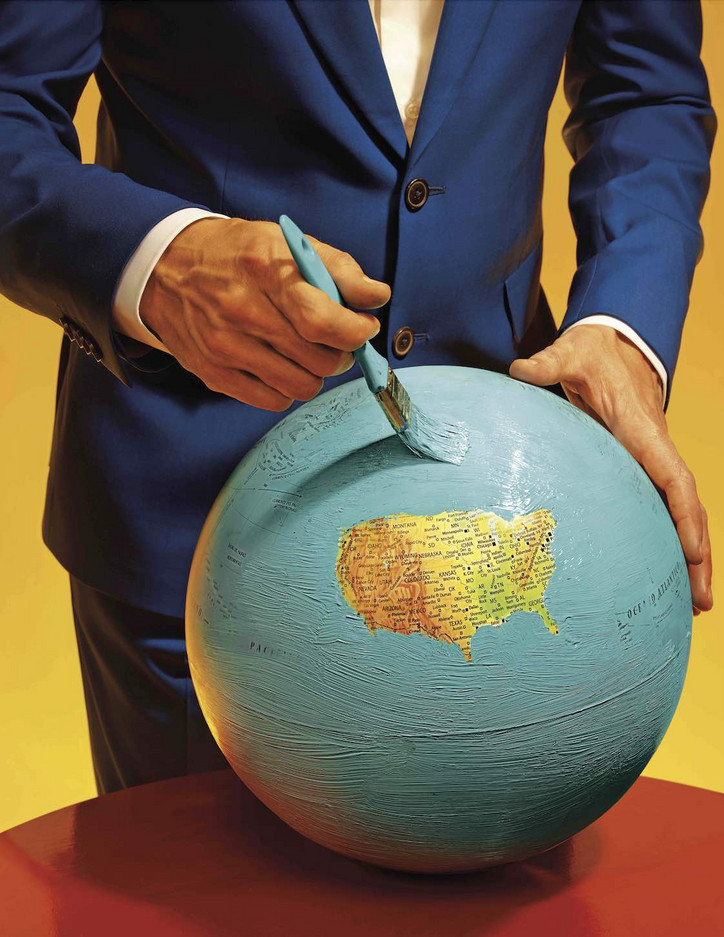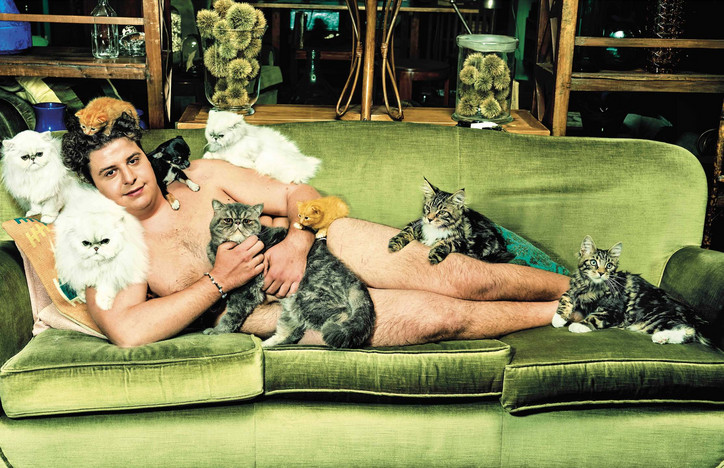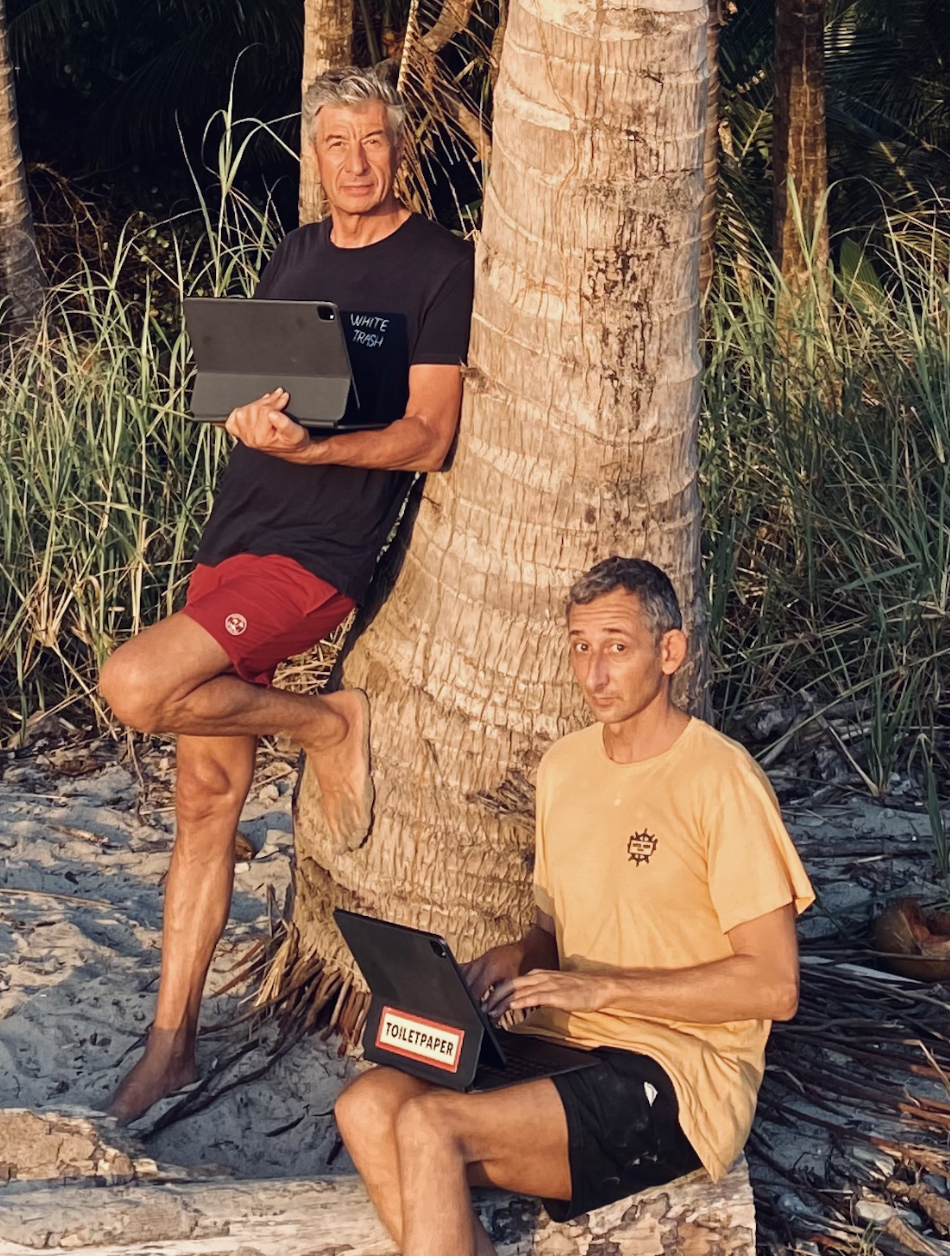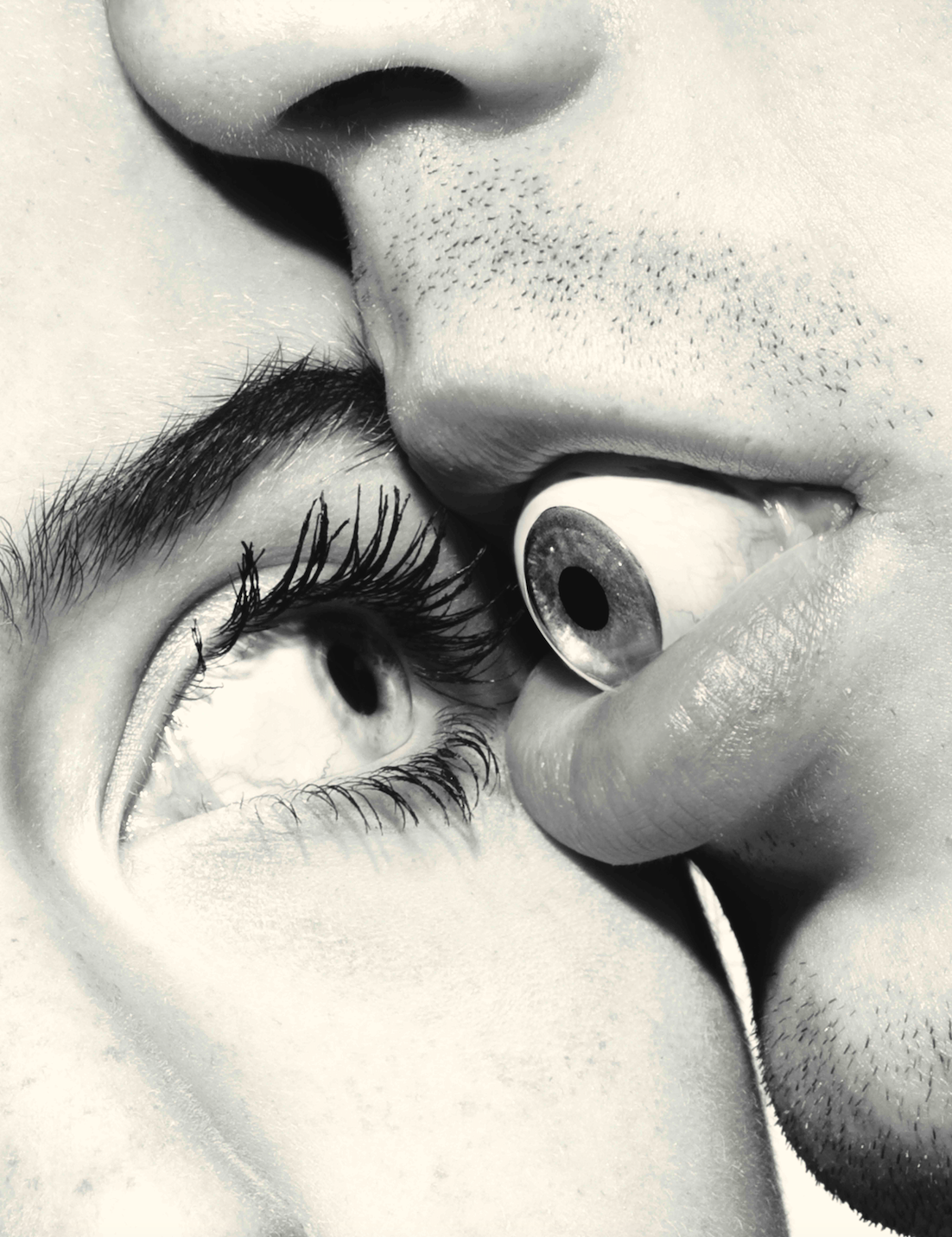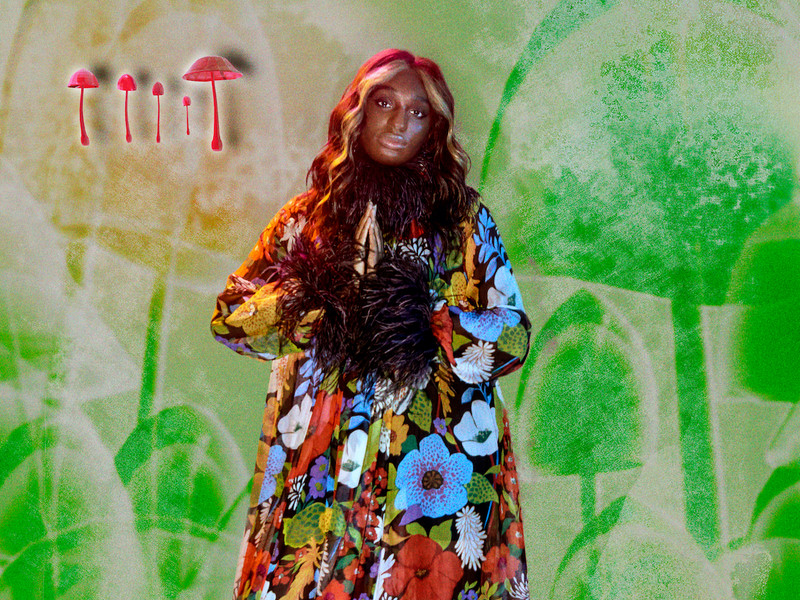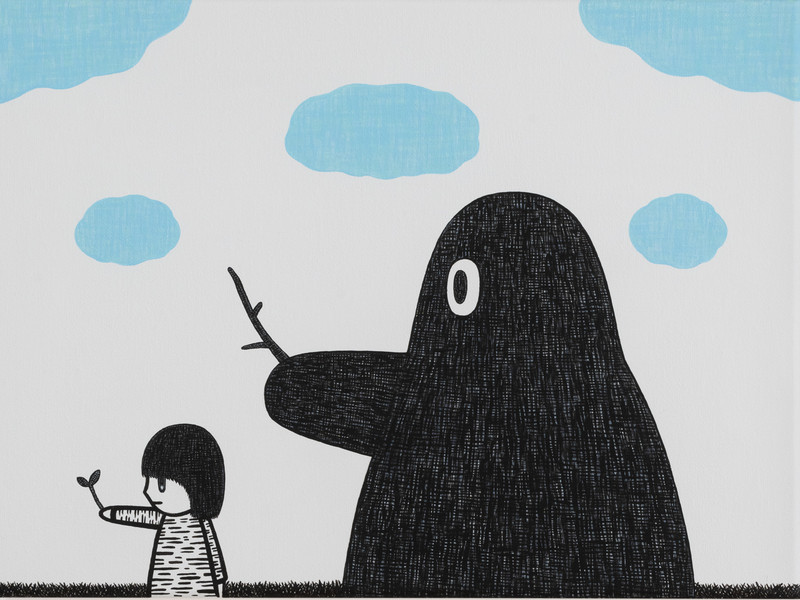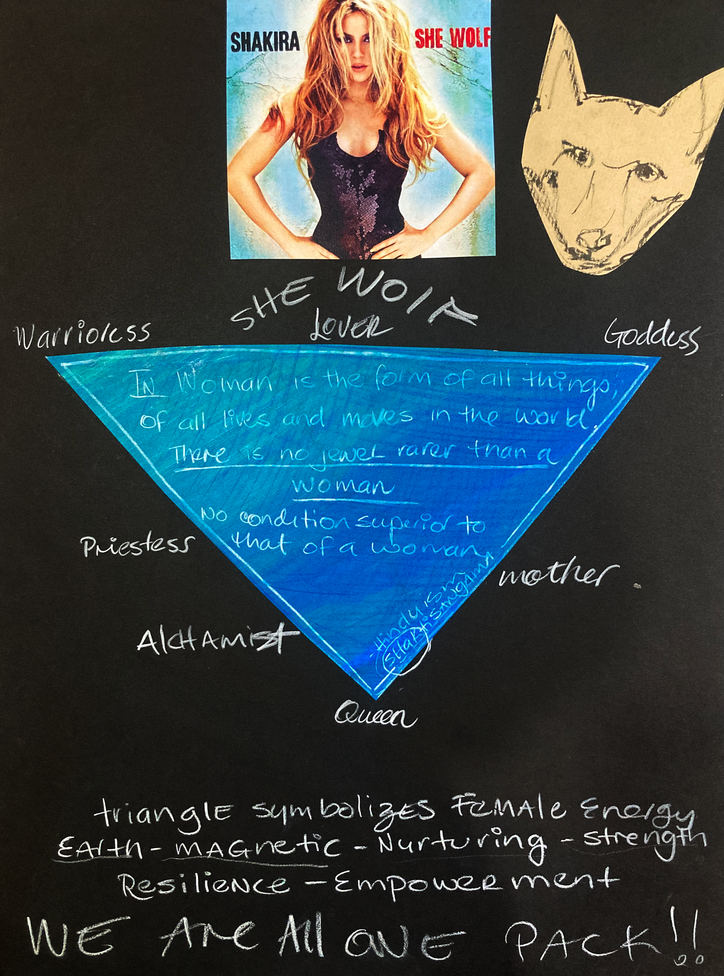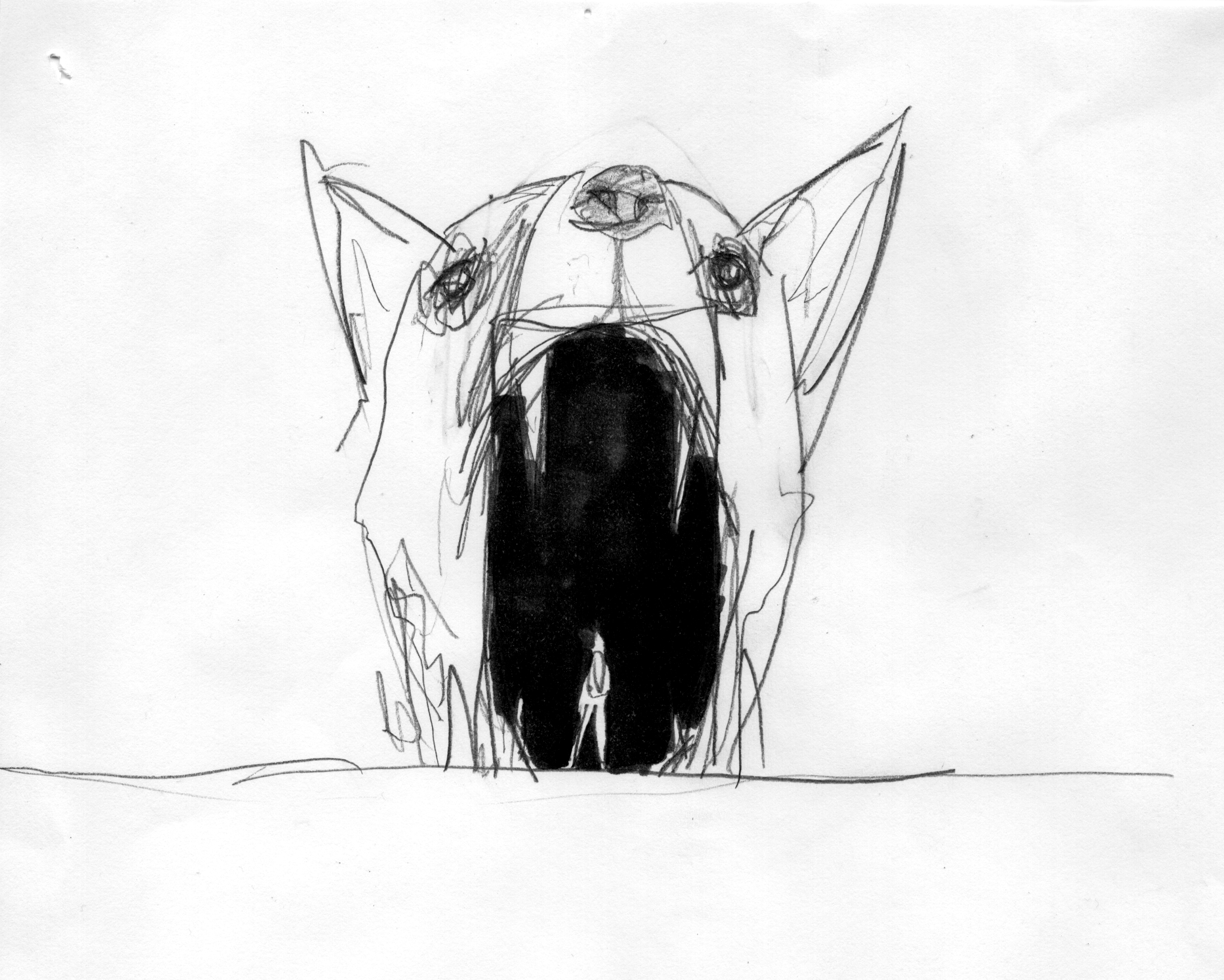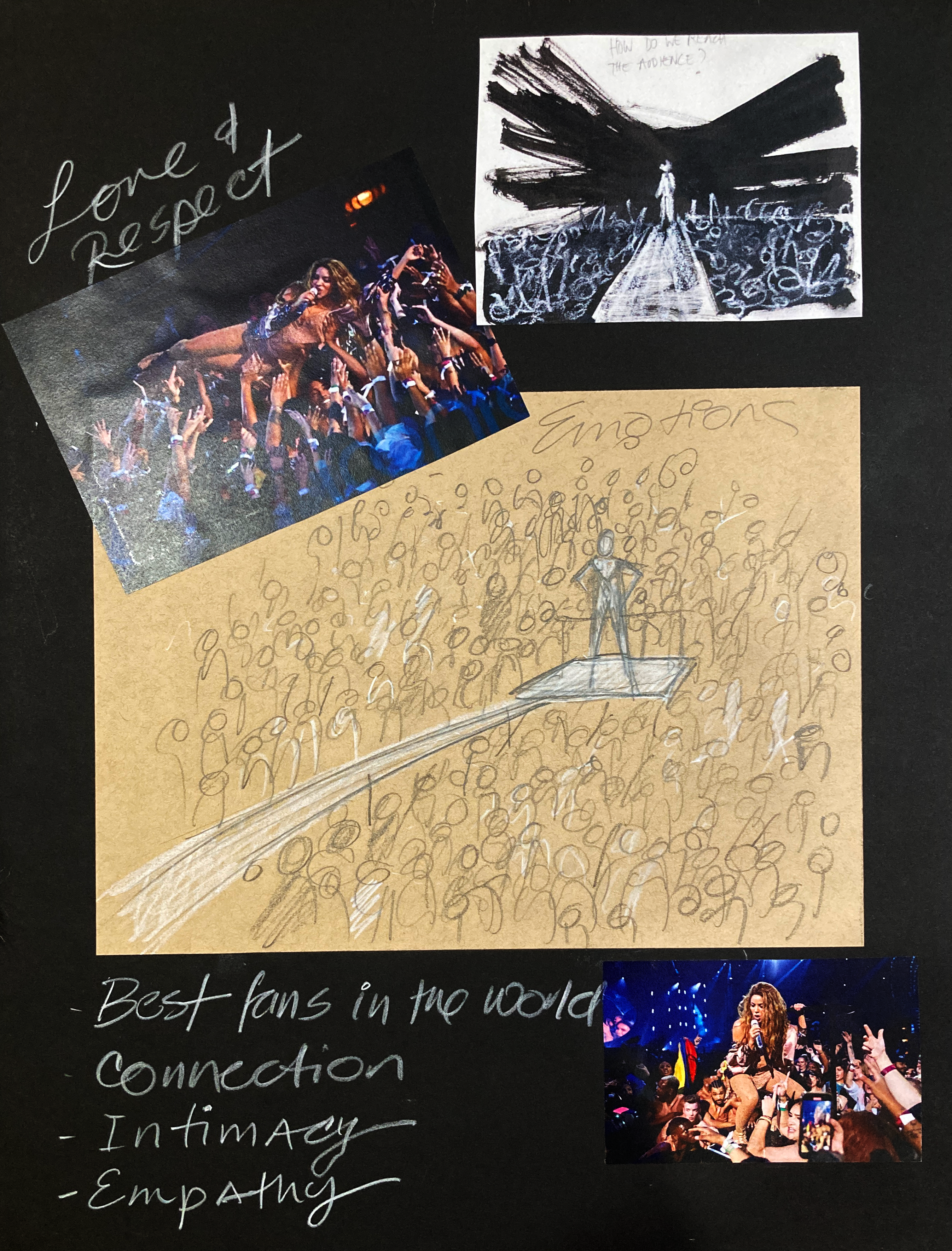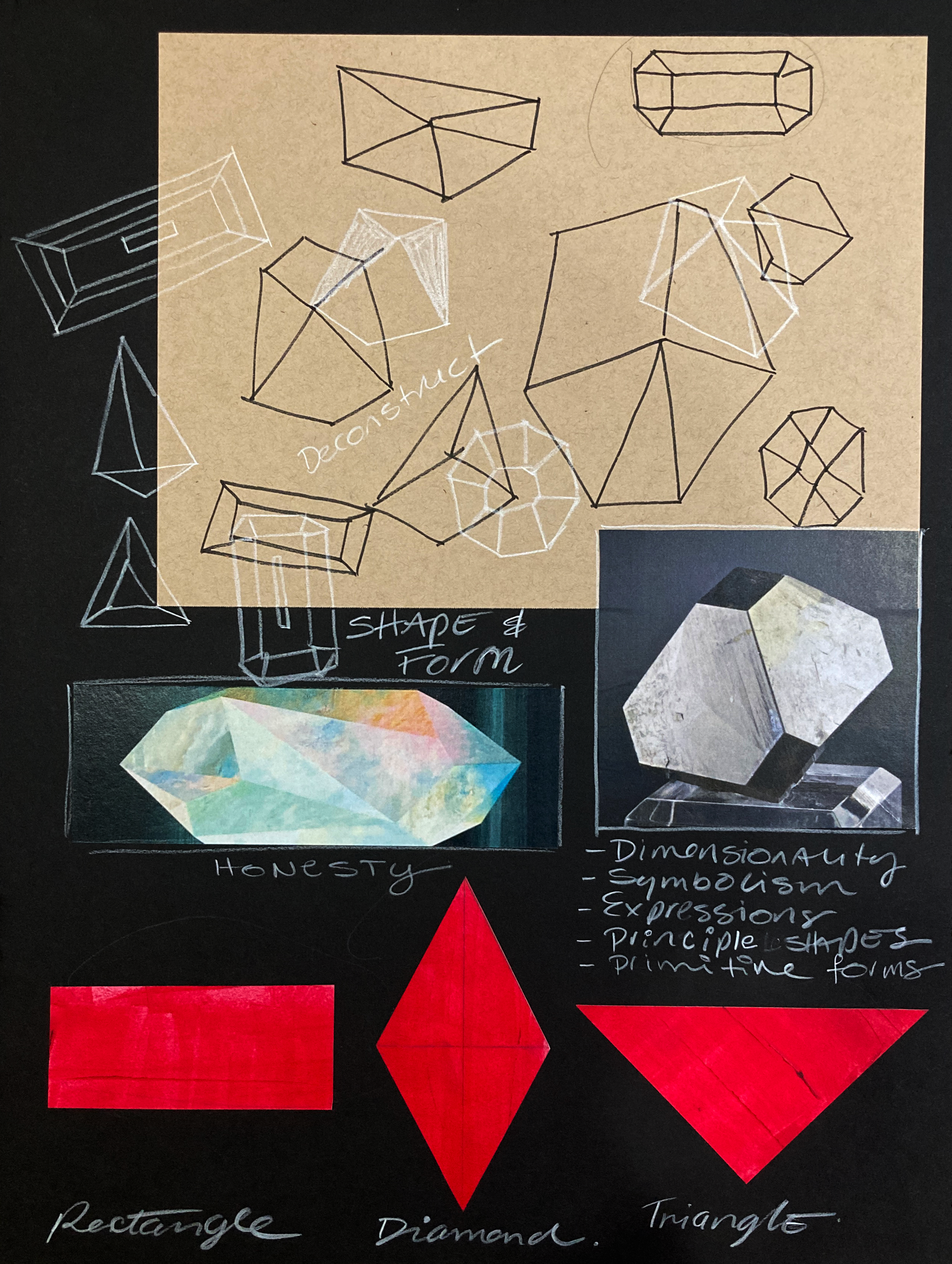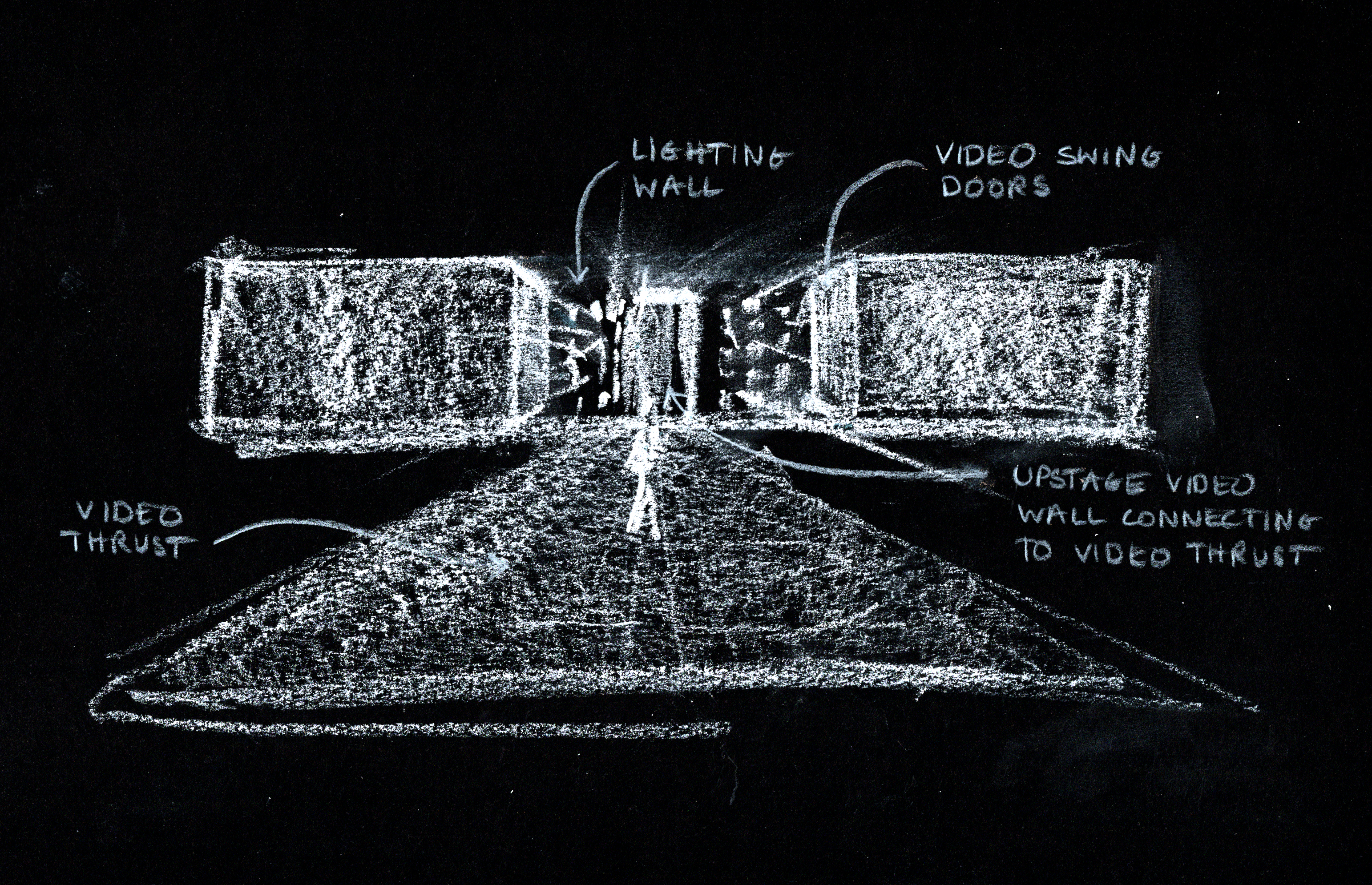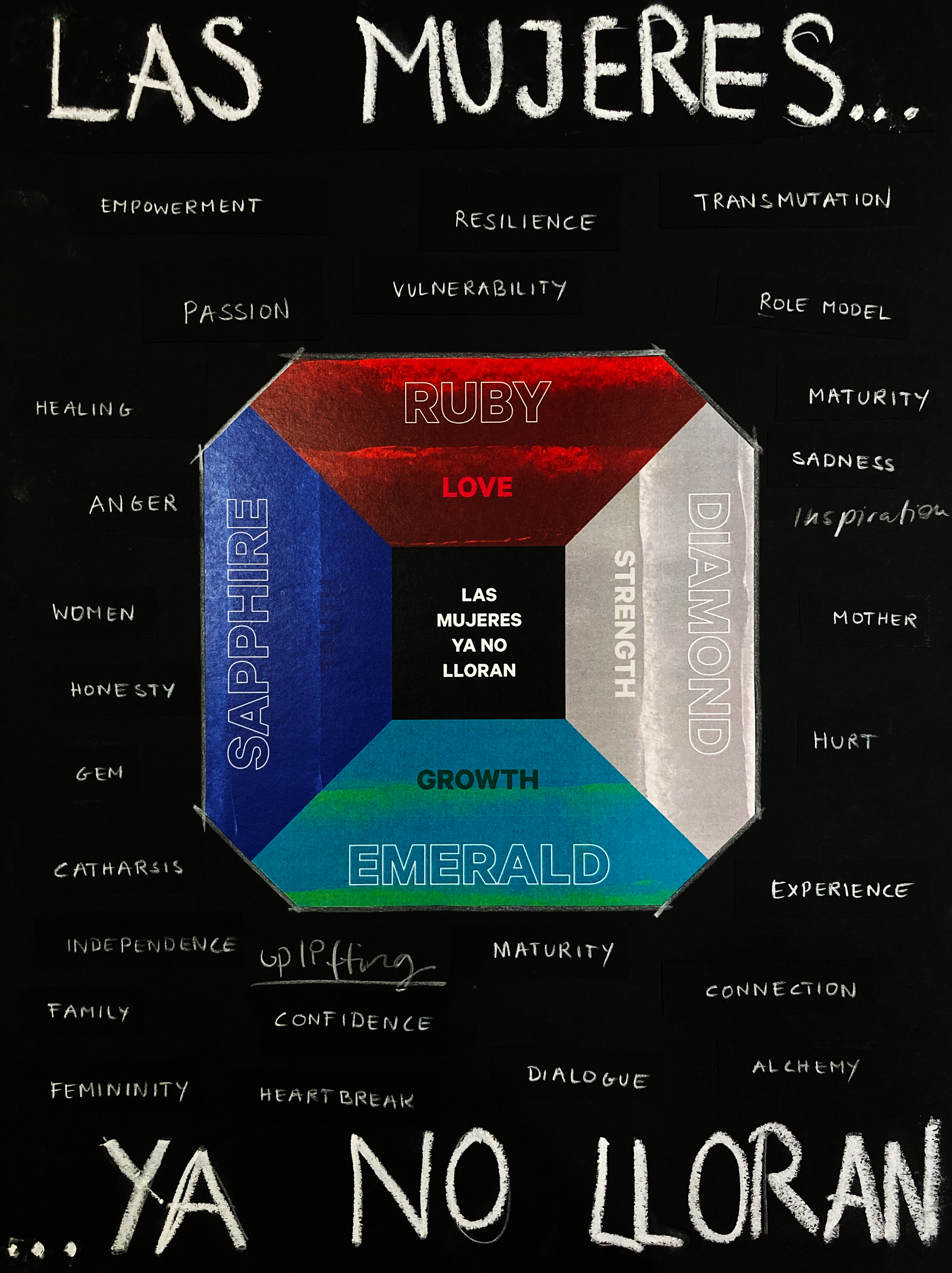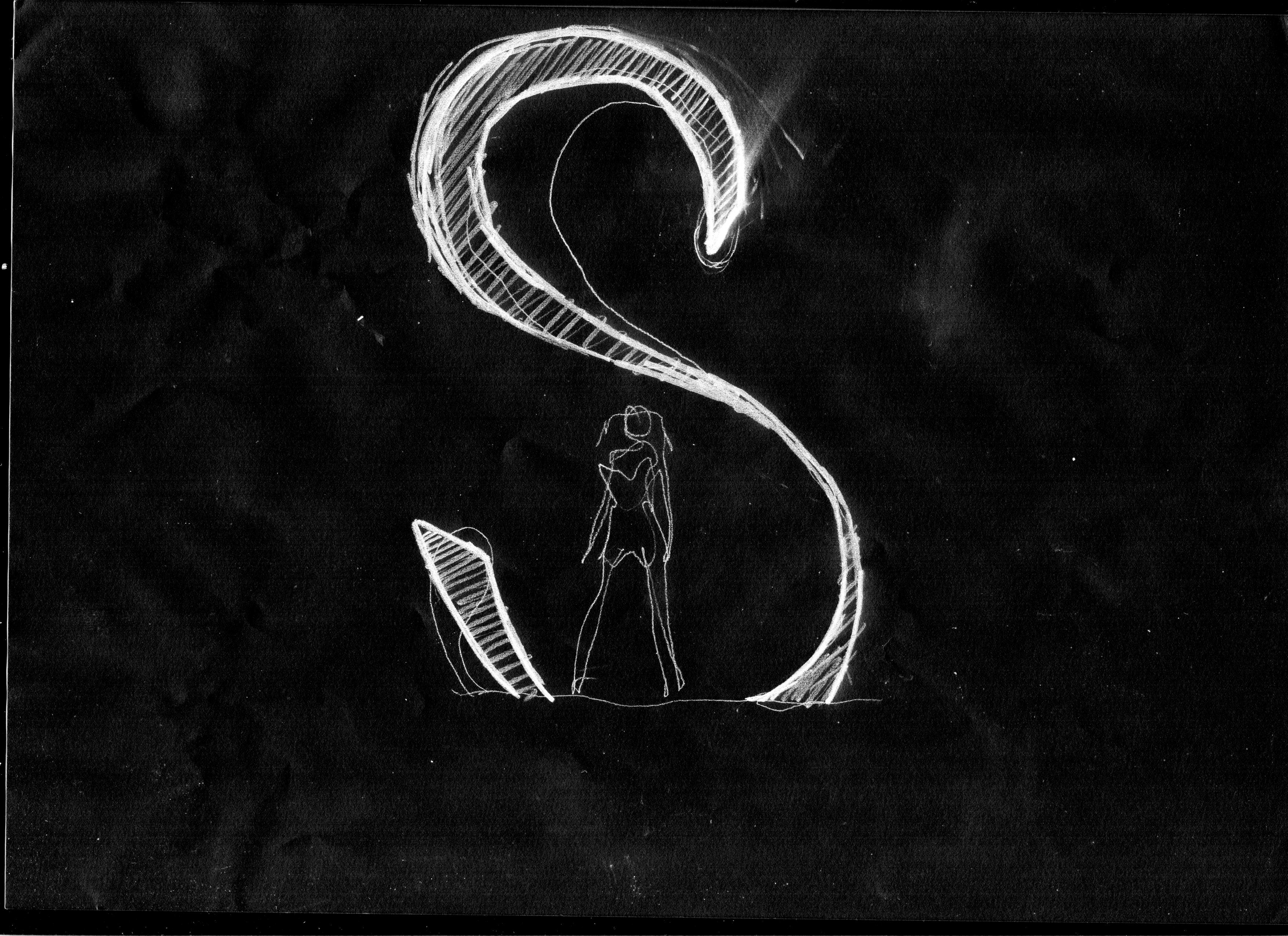Clash of Giants
In the film, Brudermann creates her own card game, Clash of Giants, through which she explores previously unpublished historical material. This para-journalistic method, in which revisionist history is portrayed through a whodunit-style drama, is characteristic of the artist. And in the end, history is only relative to the person that’s writing it. So, unless we all want to end up in a tragic (not tragicomic) state fit for only the most unbelievable historical dramas, watch, and learn, and vote; so, history—revisionist or not—doesn’t repeat itself.
Below, Adam Kleinman dissects the film and its political reality. Each header is borrowed from a set of dealt fictive playing cards that spur the action in Clash of Giants.
Everything tends towards catastrophe and collapse. I'm interested, geared up, and happy.
/ Half your Win (Clash of Giants playing card)
The following statement is so self-evident today that it unfortunately requires no qualification: the world is everywhere on fire. As such, I’d like to begin by asking: how do disasters come to pass? Are they the result of one catastrophic accident perpetrated by one bad actor, or are they the eventual conclusion of a string of lesser acts, each seemingly slight on their own, which pile-up into total systemic failure? Such a question lays at the heart of Dr. Diane Vaughan's research into what the sociologist and Columbia University professor calls the “dark side” of organizations. Focusing on events such as the Space Shuttle Challenger and Columbia disasters (amongst others), Vaughan has demonstrated that these events are the eventual outcome of flawed organizational behaviors that she has termed the “normalization of deviance”. Within this framework “social normalization of deviance means that people within the organization become so much accustomed to a deviant behavior that they don't consider it as deviant, despite the fact that they far exceed their own rules for elementary safety”. Going beyond industrial accidents, the acceleration of tolerating negligence has become the standard operating procedure following the hacked results of both the 2016 Brexit Referendum and the 2016 United States Presidential Election.
Secrets are for sale. Be an avid buyer
/ Double your Win (Clash of Giants playing card)
Long before Cambridge Analytica “broke” not only the internet, but almost every aspect of the Anglo-American body politic, there was the Cambridge Project, a 1969 US Department of Defense program run at M.I.T and Harvard to make computer models of the behavioral tendencies of entire populations so as to predict leftist insurrections in Latin America and South East Asia—and thus to be able to ascertain “at risk” countries in which the United States should intervene. I am not writing a piece for you here on this legacy in the specific, instead I wish to call attention to the fact that this project, and many others, are not only the progenitors of “psychographic” politics and the logic behind social contagion algorithms, but are the very grounds on which the internet was conceived, raised on, and lo and behold, still influences its ways and means. Said in another way, the internet is, and will always be, a mass surveillance and propaganda machine built to game society through statistical analysis and tailored micro-targeted messaging.
Because he was not very intelligent, he practiced a flagrant rather than clever diplomacy, a course of actions designed more to increase his own prestige than to save peace
/ Half your Win (Clash of Giants playing card)
Looming over this all are tales of intrigue, from Russian interference in political campaigns, to unending conspiracy claims that are too many and too convoluted to mention here. Behind even this is: the backdrop of "the paranoid style of American politics" has always, and already been present. Like during peak McCarthyism in the 1950s, political messaging has gone from winning hearts and minds to sowing general hate and distrust in the aims of achieving a winner-take-all form of divide and rule diplomacy—for both foreign and domestic politics alike. While no one manifesto or playbook has been written on this, a key style of subverting discourse from within emerged from the Kremlin just before Russia annexed Crimea.
According to (sustained) rumors, Vladislav Surkov, the former Assistant to the President of the Russian Federation, published the dystopian sci-fi thriller Close to Zero under the pseudonym Nathan Dubovitsky. In this "gangsta fiction" book, the protagonist, a Public Relations consultant manages the campaign of a fictive regional governor (read: Vladimir Putin) by selectively leaking competing fake news while manipulating the press to go on various turf wars defending differing pieces of disinformation. Dubovitsky writes that this tactic was:
“the first non-linear war. In the primitive wars of the 19th and 20th centuries it was common for just two sides to fight. Two countries, two blocks of allies. Now four coalitions collided. Not two against two, or three against one. All against all."
Although this political theater of dissensus may seem new, it might actually be a re-un.
And ye shall know the truth, and the truth shall make you free
/ Double your Win (Clash of Giants playing card)
Clash of Giants reveals the correspondence of Nin Brudermann’s great granduncle, General Rudolf Ritter von Brudermann, whose army participated in the crushing defeat of the Austrian-Hungarians forces at the hands of the Russians during the Battle of Galicia (1914). These letters, hidden in a family chest in Vienna, and uncovered by the artist in 2014, stipulate how Franz Conrad von Hötzendorf, Chief of the General Staff of the military of the Austro-Hungarian Army and Navy, was a Russian intelligence asset. To verify the documents, Brudermann turned to the work of Bruce W. Menning, who uncovered the minutes from a 1913 intelligence briefing by the Austrian Army in a Russian archive demanding the suppression of compromising materials tying Conrad’s son to the espionage network of Austrian arc-traitor, Alfred Redl, through an affair with a Russian/Italian spy. The exact reach and extent of this, and other blackmail schemes, is teased at through the film. In the Clash of Giants, Nin Brudermann presents a time not unlike our own in which competing factionalism and greed destroyed the entire balance of nations as various elites marshaled war, violence, enslavement, and colonialism to build vast sums of capital.
This New Imperialism of the late 19th, and early 20th Century was typified, amongst other things, by two events; the "Scramble for Africa", in which various European forces raced to cut up and claim an entire continent, and "The Great Game", a confrontation between the British and Russian Empires to divvy up Asia. The stress of these proxy wars ultimately folded in upon itself as these Empires went after each other directly in the First World War--the march to which is portrayed in Brudermann's film as tensions mount at a modified roulette table populated by parodied European diplomats who lose their shirts. While the failed League of Nations was developed in the Great War's wake, three other paradigms were also developed to greater effect thereafter.
The first would find root in the Soviet Union through the idea that modern technology could manage a utopian planned economy. Countering this, the United States undertook a lassie-faire free market approach in which the agency of the market itself would self-regulate and find equilibrium. Europe, after the horrors of that war's second act, WWII, took up the course of integration in which a mutual codependence of cooperating economies would prevent strife.
Each for their own reasons, these grand ideologies have, or are begging to unravel as we find ourselves lost in a continually growing political and philosophical vacuum today. In a fashion not dissimilar to the disruptions of the early 20th Century, the early 21st appears as if on a collision course toward utter chaos as one crisis replaces the next. It could be said that our leaders are asleep at the wheel; however, as various forms on inequity, from wealth to representation, continually syphon toward the top after each "new normal" solution is established, it might be more accurate to describe global affairs today as a dangerous bet in which the few jockey against each other to dispossess the many.
In order to comment on this new test, historical parallelisms, such as equating the Great Depression to the Great Recession, are often turned to as a guide. Not surprisingly, the upheavals, such as the thirst for authoritarianism as an answer to growing social turmoil, that are coming to a head in 2020 were predicated by social scientists such as Peter Turchin, founder of Cliodynamics, a transdisciplinary field of study which treats history as a measurable science. One of the tipping point's in Turchin's metric is when a society develops too many qualified players, but not enough seats at the table. This overproduction of elites:
leads to more intra-elite competition that gradually undermines the spirit of cooperation, which is followed by ideological polarization and fragmentation of the political class. This happens because the more contenders there are, the more of them end up on the losing side. A large class of disgruntled elite-wannabes, often well-educated and highly capable, has been denied access to elite positions.
This in turn can lead to one of two paths, in the first, these competing forces recognize that they are all in it together, and work to create reforms, which offset pressures such as inequality. In the other, allies are eschewed in favor of a zero-sum gamble. Whichever journey the world embarks upon as the 2020s play out is up in the air; however, Clash of Giants warns that "those who cannot remember the past are condemned to repeat it".
with
Jordan Bridges, representing Austria
Kat Hunt, representing Russia
Anthony Haden-Guest, representing the UK
Jicky Schnee, representing France
Oliver Wyman, representing Germany
Ralf Mayer, representing Serbia
Jessie Truin, representing Italy
Quetzal Saunders, representing the Ottoman Empire
Martyna Franków, as Pitboss
Orson Bridges, as Dealer
William Baeker, as Hofrat
